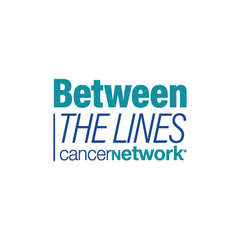
GALAXY: DFS by ctDNA Status at Weeks 4 and 12 Post Surgery
GI oncologists discuss DFS data from the dynamics analysis cohort of the GALAXY study.
Episodes in this series

Transcript:
Mark Lewis, MD: There is a lot to take in on this slide. I’ll tell you what my takeaway is, Dr Cohen. I think what’s most fascinating, albeit in a very small group, the positive to negative meaning that that initial positive signal can actually be overcome and we might see on the next slide why. In fact, Dr [Masahito] Kotaka [MD, PhD], when he was summarizing GALAXY at ASCO GI [American Society of Clinical Oncology 2022 Gastrointestinal Cancers Symposium] called out the dynamism here. He is basically saying your positive signal at 4 weeks doesn’t necessarily have to be a persistently negative prognosis, that’s something we might actually be able to affect. Really this gets into the whole clinical rationale behind adjuvant chemotherapy. I will be very honest with you, when I was first training as an oncologist and the concept of adjuvant therapy was explained to me, I thought this is going to be a really hard sell to patients. Often what will happen is they come to my clinic and they have been told by a colorectal surgeon, often very well meaning, “We got it all.” Meaning clean resection margins in the operating room, but then we know that there can be MRD [minimal residual disease]. It’s just been that until this point these assays have not been readily available [where] we could measure the MRD and know who we were most likely to benefit with adjuvant chemotherapy and even now I am making some leaps of logic. It’s fascinating to me to see that there is positive to negative group between the 4- and 12-week time points and that then those people that do convert to negative, they have a 100% 6-month disease-free survival. I just think that is absolutely remarkable.
Stacey A. Cohen, MD: My take away from that is always whenever you see something that is so perfect you always question the data a little bit. So what also went through my head is, let’s think about the time point, this is 6 months. If you look at the other observational studies they would note a lead time of about 8 to 9 months from the time of detection of ctDNA [circulating tumor DNA] until recurrence. We also don’t know what the imaging surveillance schedule was here. Yes, I am not terribly surprised that a negative patient would be disease-free at 6 months after surgery but I would be very interested in what was done. Were extra CT scans done for that patient because they were initially positive? Have they just not yet had a scan? It would be very acceptable not to scan them for a year. On what basis are we considering them disease-free? I will be interested as this data matures and there (are) presumably more events in the positive to negative group. I think it’s interesting, but I am going to be a little bit more cynical about it.
Mark Lewis, MD: Great point. Every oncologist is at heart an optimist, but you're quite right to withhold enthusiasm until we see more data.
Transcript edited for clarity.
Newsletter
Stay up to date on recent advances in the multidisciplinary approach to cancer.








































